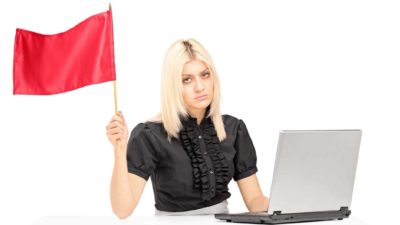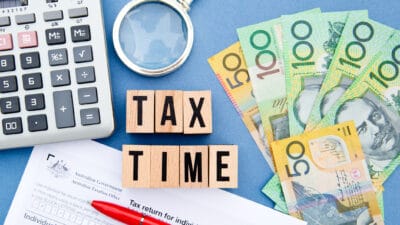Are emergency funds still important for your personal finances?
Having cash on hand is the best way to ensure your finances are stable in my opinion. Some people like to think that a share portfolio or a credit card are adequate replacements for an emergency fund – I don't think that's a good idea.
Let's think about the share portfolio idea. Sometimes emergencies will come along whilst the economy is fine. But your finances are more likely to get into trouble when there's a recession. For example, you may lose your job. That's exactly when you'd need cash. But during a recession is when share prices are probably lower. Just look at what happened to the share market during March 2020 because of COVID-19! You don't want to be selling your shares during a crash.
Credit cards aren't great to rely on either. What if a bank decides not to lend you money just when you need it? I think your emergency fund needs to be your own money.
How big should your emergency fund be?
I've said for a long time that every adult in Australia should have an emergency fund of at least $1,000 (in a 'high' interest savings account). Having that money set aside can make a big difference when you need it. Going to a high-interest loan provider would put you into a negative financial spiral.
The last few months may have been the perfect example of why you need an emergency fund. You never know when a big problem is going to rise up.
I think a good goal for an emergency fund is at least three months of basic living expenses. That could be $6,000, $10,000, $15,000 or more depending on your monthly expenditure. It could take a few months to get another job if you lost your current one, which is why three months is a good target. Some people may decide that the emergency fund should be large enough just to replace the car if it were written off. That could mean $5,000 or perhaps a fair bit more if you're tradie who needs to transport heavy tools around for their job.
Some households like to have up to six months of living expenses saved up. My household has an emergency fund amounting to around five months of living expenses if we were fairly frugal.
It may be a good idea to put your emergency fund into a different banking institution to your transaction account. So if a big four ASX bank like Commonwealth Bank of Australia (ASX: CBA), Westpac Banking Corp (ASX: WBC), National Australia Bank Ltd (ASX: NAB) and Australia and New Zealand Banking Group (ASX: ANZ) is your main bank then you could think about another bank like Suncorp Group Ltd (ASX: SUN), Macquarie Group Ltd (ASX: MQG) or Bendigo and Adelaide Bank Ltd (ASX: BEN) for your emergency fund.
Is it good to have a rainy day fund these days?
I think a few ASX shares could have done with saving a bigger emergency fund coming into COVID-19. It's painful for shareholders when businesses raise capital at much lower share prices.
But households can't go to capital markets for capital raisings. They generally have to rely on themselves.
I'm glad that the Australian government has stepped in with large financial support in the form of jobkeeper and an expanded jobseeker. But that support is going to be reduced later this year.
I think emergency funds are more important than ever in the current COVID-19 world we're living in.
Earnings are less certain, and we can't expect the banks and government to be as supportive the longer this goes on.
If you already have an emergency fund I think it could be worth adding to it. If you don't have any emergency fund then, if your income and budget allows, I think it's time to start building one.
To be clear, you shouldn't think of your emergency fund as an investment that's meant to make returns. It's there to provide financial stability, it doesn't matter if the interest rate is poor.
If you have a strong financial foundation then it gives you more flexibility to invest more heavily in 'risk' assets like shares.








